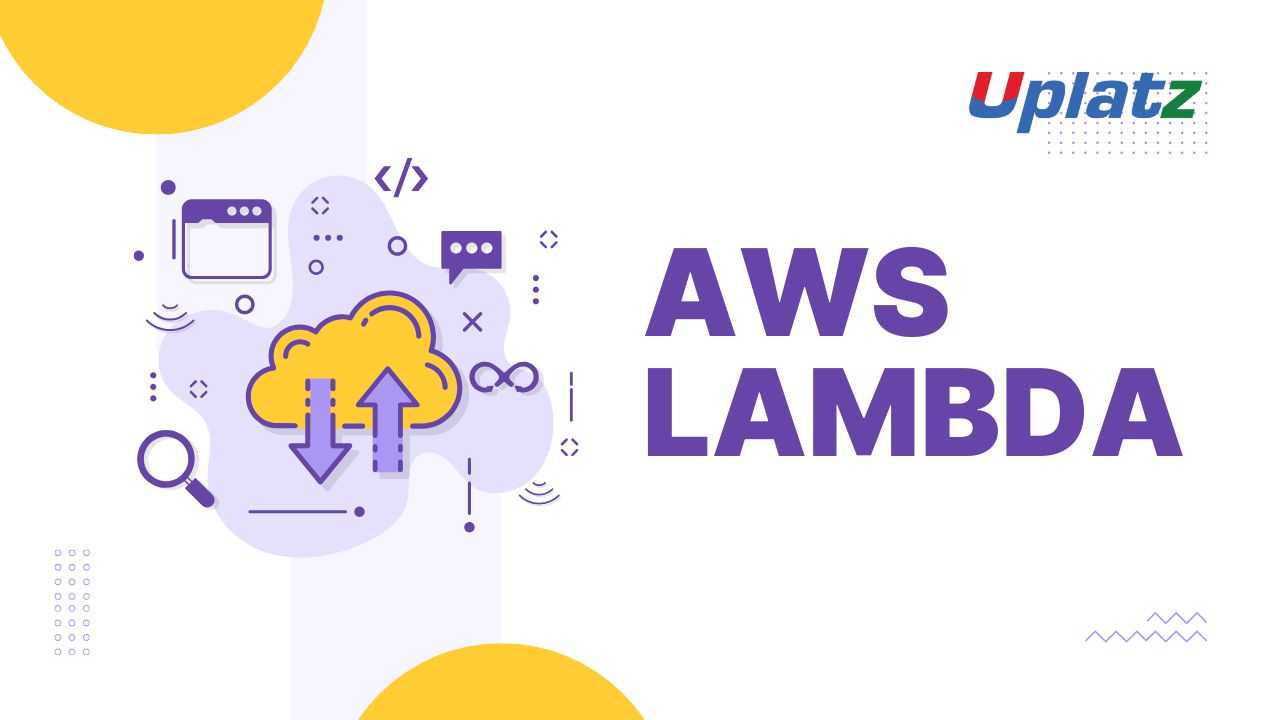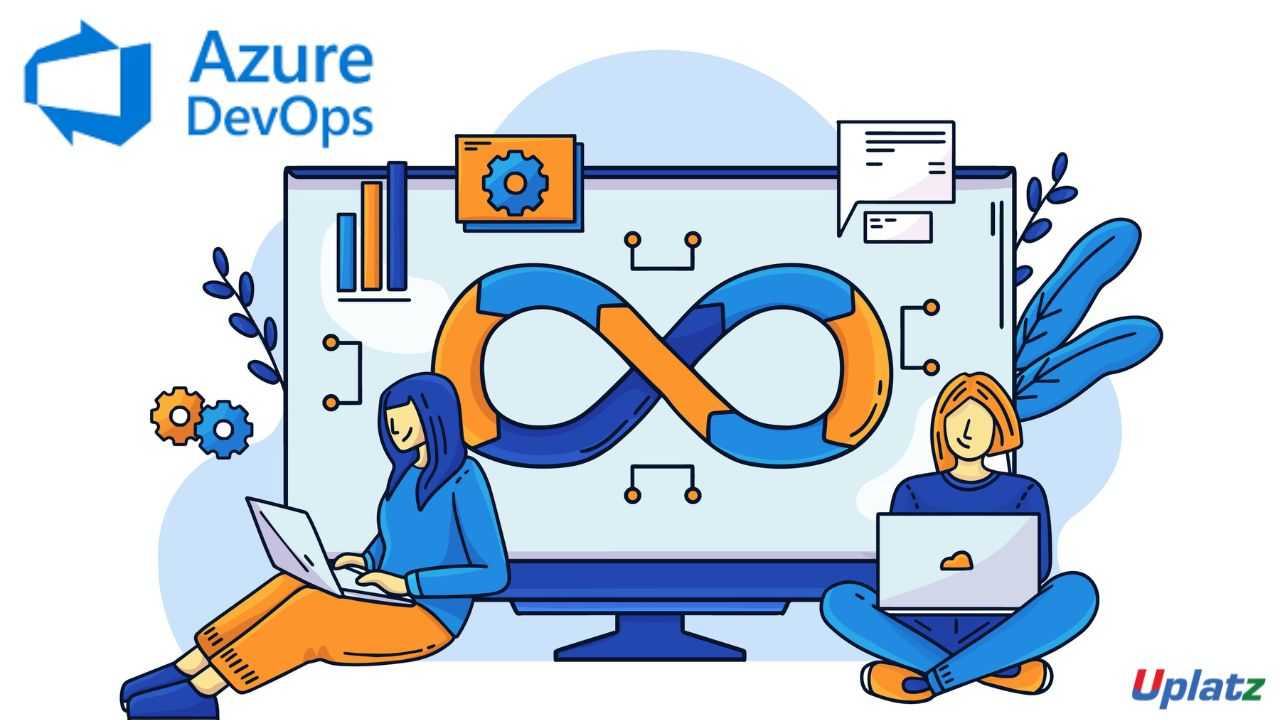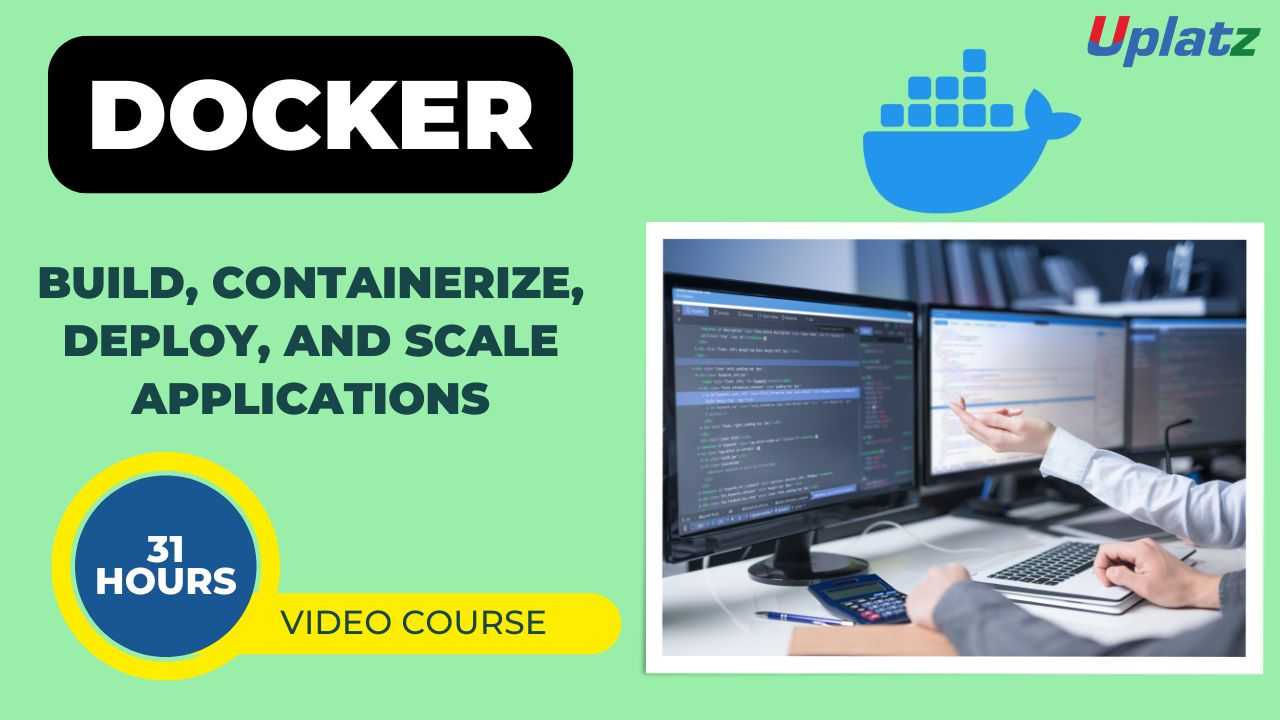Bundle Course - Cloud Platform Professional (AWS/GCP/Azure)
Master Multi-Cloud Deployment with AWS, GCP, Azure, Docker & Terraform – From Foundation to Cloud Engineering ExpertisePreview Bundle Course - Cloud Platform Professional (AWS/GCP/Azure) course
Price Match Guarantee Full Lifetime Access Access on any Device Technical Support Secure Checkout Course Completion Certificate 92% Started a new career
BUY THIS COURSE (
92% Started a new career
BUY THIS COURSE (GBP 27 GBP 49 )-
 86% Got a pay increase and promotion
86% Got a pay increase and promotion
Students also bought -
-

- AWS Lambda
- 10 Hours
- GBP 12
- 10 Learners
-

- Azure DevOps
- 10 Hours
- GBP 12
- 10 Learners
-

- Docker
- 30 Hours
- GBP 12
- 1481 Learners

- AWS (Amazon Web Services)
- GCP (Google Cloud Platform)
- Microsoft Azure Fundamentals
- Terraform – Automating Cloud Infrastructure
- Docker – Containerization Fundamentals
Start with AWS, Azure, or GCP depending on your target platform, as each course offers foundational to intermediate-level training. Continue with Docker to understand containerized application development, then move on to Terraform to manage infrastructure as code. This modular structure allows learners to follow the courses sequentially or focus on specific technologies depending on job requirements or certification goals.
- Launch, configure, and secure cloud resources on AWS, Azure, and GCP
- Set up cloud storage, compute, database, and network services
- Deploy containerized applications using Docker
- Automate infrastructure with Terraform across multi-cloud platforms
- Understand IAM, VPC, monitoring, billing, and compliance features
- Work with managed services like EC2, Lambda, S3, RDS, AKS, GKE, BigQuery, etc.
- Create scalable and fault-tolerant cloud applications
- Practice DevOps workflows using CI/CD and infrastructure automation
- Build reusable cloud modules and automate provisioning
- Prepare for global certifications from AWS, Microsoft, and Google
-
Cloud Engineers and DevOps Engineers
-
System Administrators and Infrastructure Specialists
-
Developers deploying applications to the cloud
-
IT professionals preparing for cloud certifications
-
Data Engineers and AI/ML Engineers working in cloud ecosystems
-
Freelancers building SaaS or PaaS applications
Course/Topic 1 - Course access through Google Drive
-
Google Drive
-
Google Drive
Course/Topic 2 - GCP - all lectures
-
Lesson 1 - Cloud Computing Overview
-
Lesson 2 - Google Cloud Platform (GCP) Overview
-
Lesson 3 - Compute Engine
-
Lesson 4 - Google Cloud Storage
-
Lesson 5 - GCP Networking
-
Lesson 6 - Relational Databases in Google Cloud
-
Lesson 7 - Non-relational Databases in Google Cloud
-
Lesson 8 - Cloud Storage and Processing for Big Data
-
Lesson 9 - Identify and Access Management (IAM)
-
Lesson 10 - GCP Security Services
Course/Topic 3 - Microsoft Azure Fundamentals - all lectures
-
In this lecture session we learn about microsoft azure course introduction and also talk about overview of microsoft azure.
-
In this lecture session we learn about azure basics functions and importance of microsoft azure.
-
In this lecture session we learn about microsoft azure features and also talk about functions of microsoft azure in brief.
-
In this lecture session we learn about microsoft azure glossary and also talk about features of azure glossary in microsoft azure fundamentals.
-
In this lecture session we learn about Microsoft azure certification path in microsoft azure fundamentals and also talk about features of certification path.
-
In this lecture session we learn about azure certification path and also talk about features of microsoft azure in brief.
-
In this lecture session we learn about the fundamentals of cloud computing and also talk about the features of cloud.
-
In this lecture session we learn about cloud computing functions and also talk about the importance of cloud computing in brief.
-
In this lecture session we learn about cloud computing terms and conditions and also talk about features of terms and computing of cloud computing.
-
In this lecture session we learn about amazon web service and azure and also talk about the basic difference between amazon web service and microsoft azure.
-
In this lecture session we learn about we learn about Getting started with microsoft azure and also talk about features and basic overview of Azure.
-
In this lecture session we learn about the advantages of Azure and also talk about the importance of Microsoft azure.
-
In this lecture session we learn about the basic advantage of Azure in microsoft fundamentals.
-
In this lecture session we learn about features of microsoft azure and also talk about functions of microsoft azure.
-
In this lecture session we learn about the advantages of microsoft azure and also talk about factors of microsoft azure.
-
In this lecture session we learn about career in microsoft azure and also career in microsoft azure in brief.
-
In this lecture session we learn about Microsoft Azure IOT and also talk about features of Azure IOT in brief.
-
In this lecture session we learn about fundamentals of azure components in microsoft components and also talk about features of azure components.
-
In this lecture session we learn about microsoft azure storage architecture and also talk about functions of azure storage architecture in microsoft azure.
-
In this lecture session we learn about microsoft azure table storage and also talk about features of azure table storage.
-
In this lecture session we learn about azure blob storage and also talk about the importance of microsoft azure blob storage.
-
In this lecture session we learn about the advantages of blob storage and also talk about all advantages of blob storage.
-
In this lecture session we learn about microsoft azure Queue storage in azure and also talk about features of azure Queue storage in microsoft azure.
-
In this lecture session we learn about azure virtual machines in microsoft azure and also talk about the importance of virtual machines.
-
In this lecture session we learn about azure mobile app service and also talk about how we develop mobile app services.
-
In this lecture session we learn about azure event grid and also talk about features of microsoft azure event grid.
-
In this lecture session we learn about microsoft azure backup service in azure cloud and also talk about the importance of microsoft azure backup services.
-
In this lecture session we learn about azure event hub and also talk about features of microsoft azure event hub.
-
In this lecture session we learn about azure quickstart templates in fundamentals of microsoft azure and also talk about the importance of azure quickstart template.
-
In this lecture session we learn about azure API app service in microsoft azure and also talk about functions of azure API app service.
-
In this lecture session we learn about azure cloud services and also talk about azure cloud services
-
In this lecture session we learn about azure SQL database configuration and also talk about SQL database features.
-
In this lecture session we learn about Microsoft Azure devOps and also talk about the importance of azure devOps.
-
In this lecture session we learn about azure express route and also talk about microsoft azure express route.
-
In this lecture session we learn about Microsoft Azure SQL database in microsoft azure and also talk about features of SQL.
-
In this lecture session we learn about microsoft azure key vault in microsoft azure and also talk about key vaults in azure.
-
In this lecture session we learn about microsoft azure load balancer in microsoft azure and also talk about azure load balancer.
-
In this lecture session we learn about azure CDN in microsoft azure fundamentals and also talk about azure CDN.
-
In this lecture session we learn about Microsoft Azure cosmos DB in cloud computing and also talk about features of cloud computing.
-
In this lecture session we learn about fundamentals of microsoft azure domain in azure and also talk about the importance of azure domains.
-
In this lecture session we learn about legacy application modernization and also talk about features of legacy application modernization.
-
In this lecture session we learn about microsoft azure portals and also talk about all portals of microsoft azure.
-
In this lecture session we learn about microsoft azure services portal and also talk about features of azure all services.
-
In this lecture session we learn about what is the best model in microsoft azure and also talk about best models for enterprise.
-
In this lecture session we learn about microsoft azure deep dive and also talk about features of microsoft azure deep dive.
-
In this lecture session we learn about azure management portal in microsoft azure management function and factors.
-
In this lecture session we learn about subscription and billing and also function importance subscription and billing.
-
In this lecture session we learn about azure storage services and also talk about functions of azure storage services.
-
In this lecture session we learn about creating and configuring azure storage accounts and also talk about functions of creating azure storage accounts.
-
In this lecture session we learn about microsoft azure storage account in fundamentals of azure portals.
-
In this lecture session we learn about Microsoft Azure Storage account and also talk about features of azure storage.
-
In this lecture session we learn about microsoft azure websites and services in azure and also talk about basics of websites and services.
-
In this lecture session we learn about factors of websites and services in microsoft azure.
-
In this lecture session we learn about validation warnings in microsoft azure.
-
In this lecture session we learn about how to develop azure websites and services and also talk about functions of websites and services.
-
In this lecture session we learn about what is services protections and DDos protections in microsoft azure.
-
In this lecture session we learn about network interface and also talk about functions of network interface.
-
In this lecture session we learn about microsoft azure Vnet connectivity and also talk about features of peeing and global peeing.
-
In this lecture session we learn about microsoft azure compute services and also talk about functions of features of compute services.
-
In this lecture session we learn about creating virtual machines and also talk about functions of creating virtual machines.
-
In this lecture session we learn about creating an availability set in Microsoft Azure and also talk about factors of creating an availability set.
-
In this lecture session we learn about scaling microsoft azure virtual machines and also talk about functions of scaling azure virtual machines.
-
In this lecture session we learn about azure app services and also talk about how we create microsoft azure app services.
-
In this lecture session we learn about creating a web application and deploying it and also talk about features of deploying.
-
In this lecture session we learn about features of creating a web application and deploying in microsoft azure.
-
In this lecture session we learn about microsoft azure mobile app services and also talk about features of mobile app services.
-
In this lecture session we learn about microsoft azure notification hub and mobile engagement.
-
In this lecture session we learn about microsoft azure functions apps and also talk about features of azure functions apps.
-
In this lecture session we learn about microsoft azure functions and also talk about functions of microsoft azure functions.
-
In this lecture session we learn about microsoft azure API app and API management and also talk about functions of API management in microsoft azure.
-
In this lecture session we learn about creating an API using azure portal and also talk about features creating an azure portal.
-
In this lecture session we learn about Azure API app services details and also talk about features of API app services.
-
In this lecture session we learn about microsoft azure database services and also talk about features of database services.
-
In this lecture session we learn about Microsoft Azure SQL database and also talk about features of SQL database.
-
In this lecture session we learn about Microsoft Azure SQL database configuration and also talk about features of SQL database.
-
In this lecture session we learn about global distribution and partitioning and also talk about features of global distributions.
-
In this lecture session we learn about Microsoft Azure SQL data warehouse and also talk about functions of azure SQL data warehouse.
-
In this lecture session we learn about cloud computing importance and also talk about functions of cloud computing importance.
-
In this lecture session we learn about microsoft azure certification path and also talk about features of azure certification path.
-
Understand core services and cloud architecture in AWS, GCP, and Azure
-
Launch and manage VMs, containers, and databases on cloud platforms
-
Use Docker for app containerization and image management
-
Create scalable infrastructure using Infrastructure as Code (IaC) with Terraform
-
Secure cloud environments using IAM, policies, and firewalls
-
Automate provisioning of resources across multi-cloud environments
-
Set up virtual networks, load balancers, and cloud storage
-
Monitor cloud infrastructure using built-in tools and logging services
-
Deploy microservices using Docker Compose and registries
-
Prepare for industry-recognized certifications in AWS, Azure, GCP
- AWS Console and CLI overview
- EC2, VPC, IAM, S3, RDS, and CloudWatch
- Elastic Load Balancing and Auto Scaling
- Lambda and Serverless Architecture
- Route53 and DNS management
- Billing, pricing models, and cost explorer
- Identity Federation and Security Groups
- GCP Console and Cloud Shell
- Compute Engine, App Engine, and Cloud Run
- Cloud Storage and Firestore
- VPC networks, subnets, and firewall rules
- GKE (Kubernetes Engine) basics
- IAM, service accounts, and Cloud Logging
- BigQuery, Cloud Functions, and Pub/Sub
- Azure Portal, CLI, and ARM Templates
- Azure Compute (VM, App Services, Functions)
- Azure Storage (Blob, Queue, Table)
- Azure Virtual Network and Load Balancer
- Identity and Access Management (RBAC)
- Azure Monitor and Security Center
- Azure Resource Manager and Cost Management
- Terraform CLI, providers, and configuration files
- Resource definition and modules
- Variables, outputs, and workspaces
- Writing reusable infrastructure code
- Managing state files and backends
- Multi-cloud provisioning with Terraform
- Integration with AWS, Azure, and GCP
-
Installing Docker and Docker Desktop
-
Building custom images using Dockerfiles
-
Working with Docker Hub and private registries
-
Docker containers and volume management
-
Docker Compose for multi-container setups
-
Networking and linking containers
-
Container lifecycle, security, and best practices
-
AWS Certified Solutions Architect – Associate
-
Microsoft Azure Fundamentals (AZ-900)
-
Google Associate Cloud Engineer
-
Terraform Associate (HashiCorp)
-
Docker Certified Associate
- Cloud Solutions Architect
- DevOps Engineer
- Cloud Infrastructure Engineer
- Site Reliability Engineer (SRE)
- Platform Engineer
- Terraform & IaC Consultant
EC2 (Elastic Compute Cloud) is AWS’s service for launching scalable virtual servers to host applications or services in the cloud.
GCP is known for its AI/ML integrations, data analytics (BigQuery), and serverless options, whereas AWS offers broader service coverage and Azure excels in Microsoft ecosystem integration.
IAM (Identity and Access Management) is used to define user roles and permissions, controlling who can access which cloud resources securely.
Terraform uses configuration files (in HCL) to define and manage infrastructure. It can provision resources across multiple cloud providers consistently.
Containers share the host OS kernel and are more lightweight, while VMs run separate OS instances, requiring more resources.
A Virtual Private Cloud (VPC) is a logically isolated network for launching cloud resources with controlled IP ranges, subnets, and routing.
Azure Monitor offers logging, metrics, and alerts to observe performance, diagnose issues, and gain insights into Azure services.
Terraform maintains a state file that tracks infrastructure changes. Remote state storage is recommended for team collaboration.
Docker Compose allows defining and running multi-container Docker applications using a YAML configuration file.
Serverless allows deploying functions without managing servers. AWS Lambda, Azure Functions, and GCP Cloud Functions are examples.









